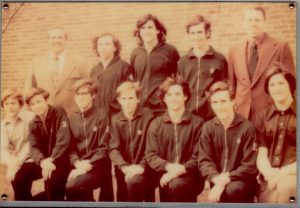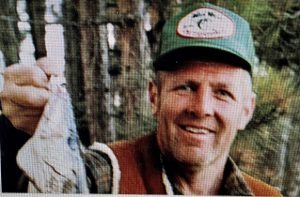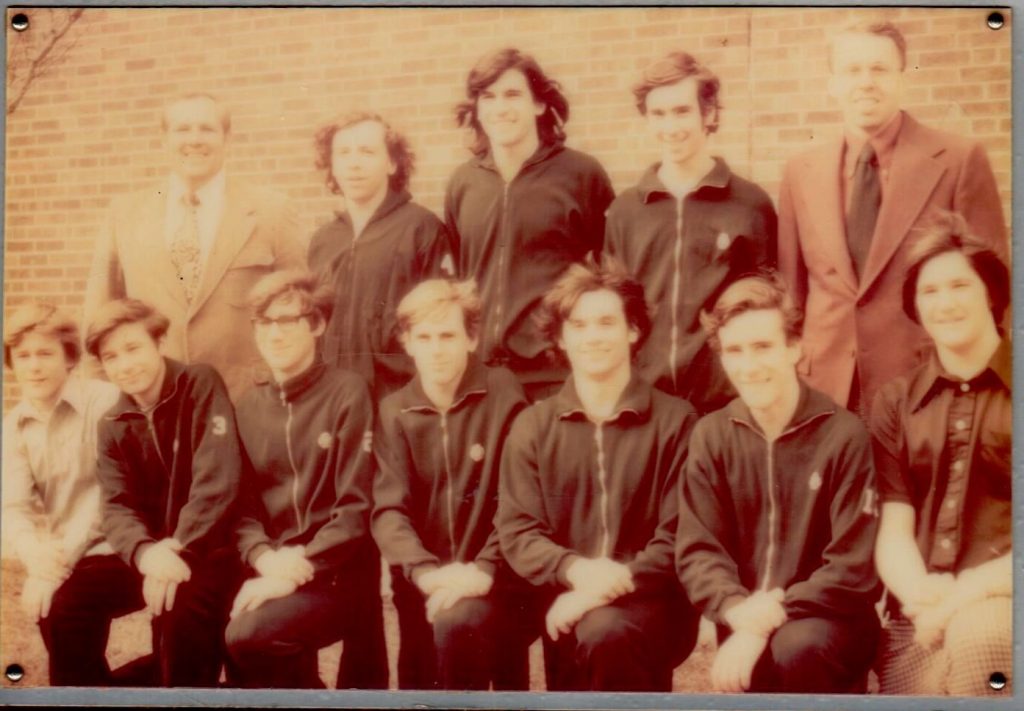
In a mean world, it is often difficult to come up with something—anything—that is uplifting and positive, to fill the space of this modest monthly blog.
But this edition is that. It’s a tribute to my high school cross country and track coach from the 1970’s, Gene Laulunen, who recently died near Chicago at age 85.
Behind his back, we called him Fatman. Coach Gene wasn’t that fat, really. Just a burly, big-boned Swedish descendent from Minnesota. He was a former track athlete himself who weighed maybe 225. To us rail-thin distance runners, he was Fatman.
Cross country, for the unfamiliar, is the autumn version of track, which is a spring sport. But it is strictly long-distance running, on grassy fields and non-standard courses. Track and field events happen around a flat oval track. They include everything from running to shot putting and pole vaulting.
Every day after school, we’d be out there in the Indian summer heat or cold rain, pacing our way through an array of training exercises. We’d start out with what Coach called some LSD—a “long slow distance” warmup run, three to five miles, to get from the high school to the practice field.
Our home ground was a hilly course in a flood plain of the Des Plaines River in my hometown of Riverside, IL. We held most of our practices there, and all of our dual meets versus other high school teams. The place was called Swan Pond, and our opponents dreaded its hills and hairpin turns.
In a typical two-hour practice, we’d cover 10 or 12 miles. We’d do hill training, quarter-mile fast and slow intervals, mock three mile “meets,” and a game called devil take the hindmost. That’s a series of short races where each time, the last finisher had to sit out the next race.
No one ever wanted to sit out. Because hard work was its own reward.
While not coaching and teaching high school English, Coach Laulunen was building his own media empire. A hunting and fishing magazine called Midwest Outdoors eventually grew to employ dozens of people. It is still going strong today. Many of us runners labored in Coach’s home garage, for pay, stuffing envelopes and collating sections of the paper.
There were times when we’d run 10 or 12 miles out to his house and work in the garage. Then get a ride back to Swan Pond for a typical tough summer workout.
And often without any direct coaching, we’d plan evening meetups and head out on six or eight mile runs through the suburban streets. We’d get home past dark. I don’t think anyone’s parents ever feared for our safety.
All of it, in my memory, was pure fun. We were out with our buds, horsing around and racking up the miles. Other teens were out cruising in cars, smoking and drinking beer. We didn’t give a damn about that sort of thing.

Coach Gene Laulunen
Coach drove us all over suburban Chicago and parts of Illinois, heading out to some meet or intriguing workout venue. He’d be cruising along in his station wagon, commenting on the landscape. “Hey, that would make a great cross-country course!” In our annual camping trip to Wisconsin, we’d do stair-climb training for two days straight; or run the 30-mile Sparta-Elroy Trail all the way out and back.
The hard work paid off. In the fall of my senior year, in 1973, we won eight out of nine dual meets. In invitational meets among multiple teams, we finished first seven times and second twice. Our overall win/loss ratio was 199 to 3.
All three defeats, including the state championship, came at the hands of a rival school nearly three times our size. York High School’s renowned cross country team was ranked No. 1 in the nation many times. (It was based on compiled track times, not an in-person competition.)
In a multiple-team cross country meet, each team enters seven runners. Its top five finishers “count” toward the final score. As in golf, a lower total is better. For lack of a strong fifth man, we were not the state champs. I was a hopeful top five finisher for our team. But in the state meet, I was a distant seventh.
For a while, I blamed myself for our disappointing finish. Afflicted with allergies and asthma, maybe I shouldn’t have been a runner at all. But I regret none of it.
Organized athletics were life-shaping. The discipline instilled by those experiences did not feel like lessons for life. They were just life, led by a coach with an unwavering optimistic spirit. For some of us, I believe it filled a void in our family lives.
It was a different time, 50 years ago, without guns or mass shootings in schools. The friendships and camaraderie were legendary. We learned to work hard, have fun, win, and accept defeat.
When news hit of the Fatman’s passing, tributes came pouring in from teammates I hadn’t heard from in decades. Here’s one more, Coach. We’ll see you on that big cross country course in the sky.

